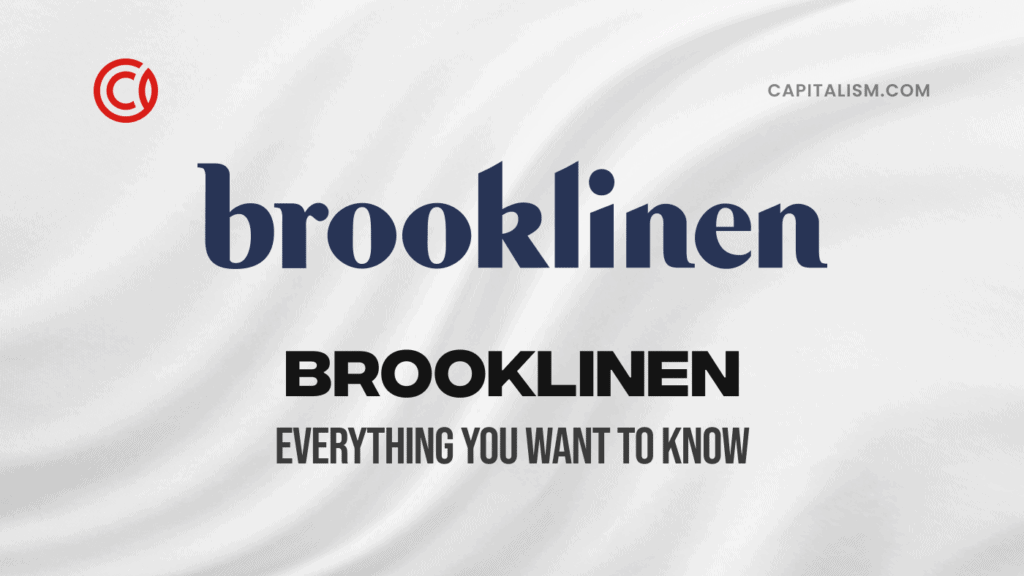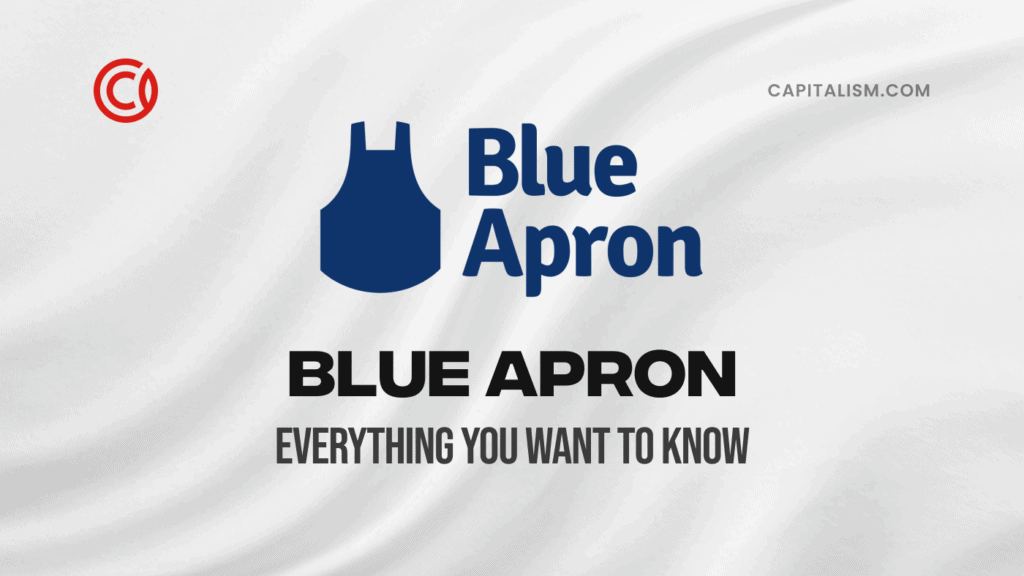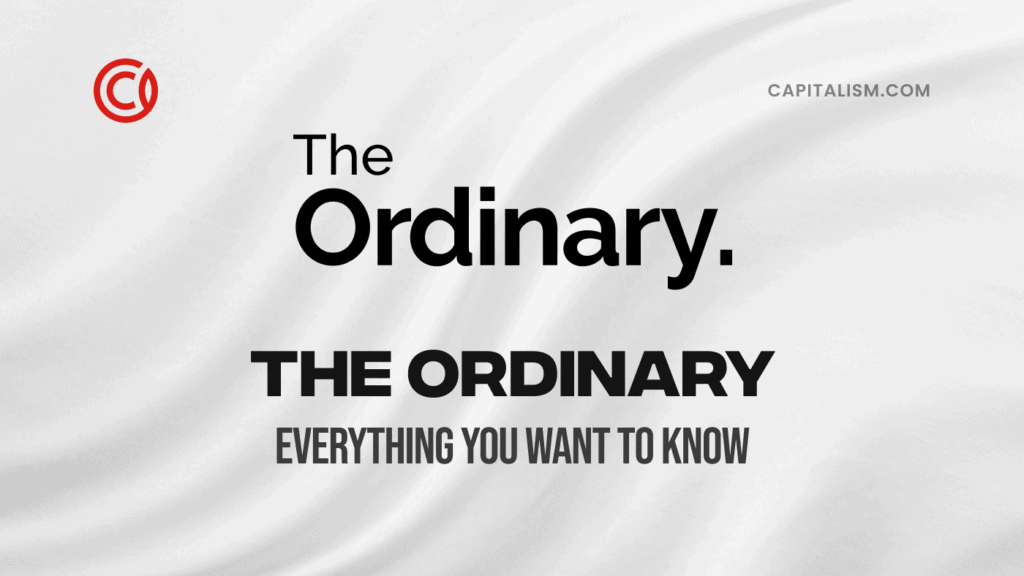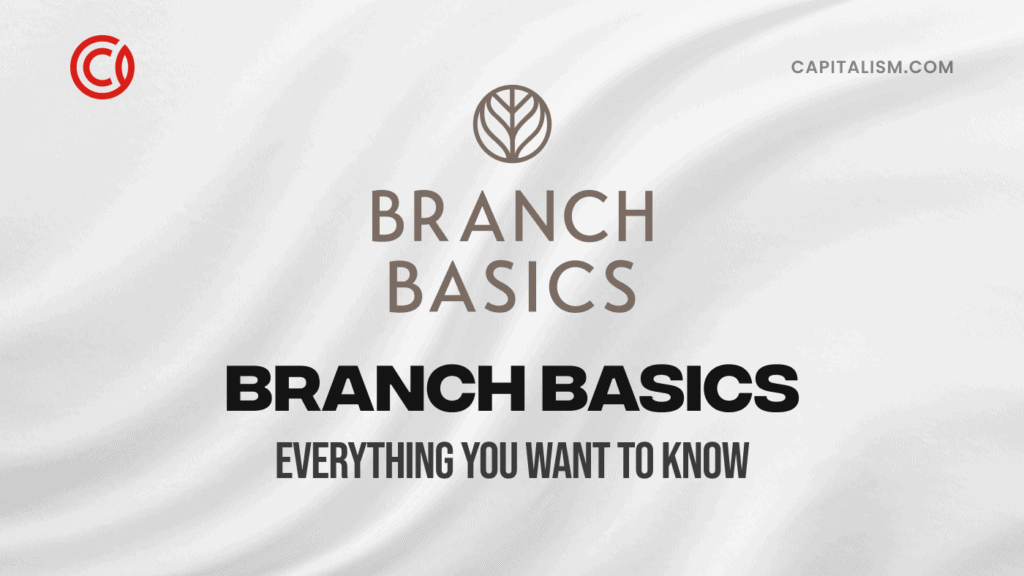Meet ten female entrepreneurs who took ownership of problems, created solutions to those problems, served people, and became fabulously successful.
Countless women have already stepped up the plate and entered the world of entrepreneurship. Many of their names you may not even recognize. So it’s time to learn about some ladies who paved the entrepreneurial road for the next generation.
Before we dive in, you might enjoy watching this Wine with Wyan conversation with brand creator Courtney Lee, owner of Prymal. Inspired by her dad’s Type 2 Diabetes diagnosis, Courtney created a very tasty solution. In the process, she built a seven-figure business.
Who is the First Woman Entrepreneur in the World?
The history of female entrepreneurs dates back many centuries ago. Unfortunately, you probably didn’t read about any of them in your history textbooks. However, these female business owners were pioneers in their time and made it possible for other women to follow in their footsteps.
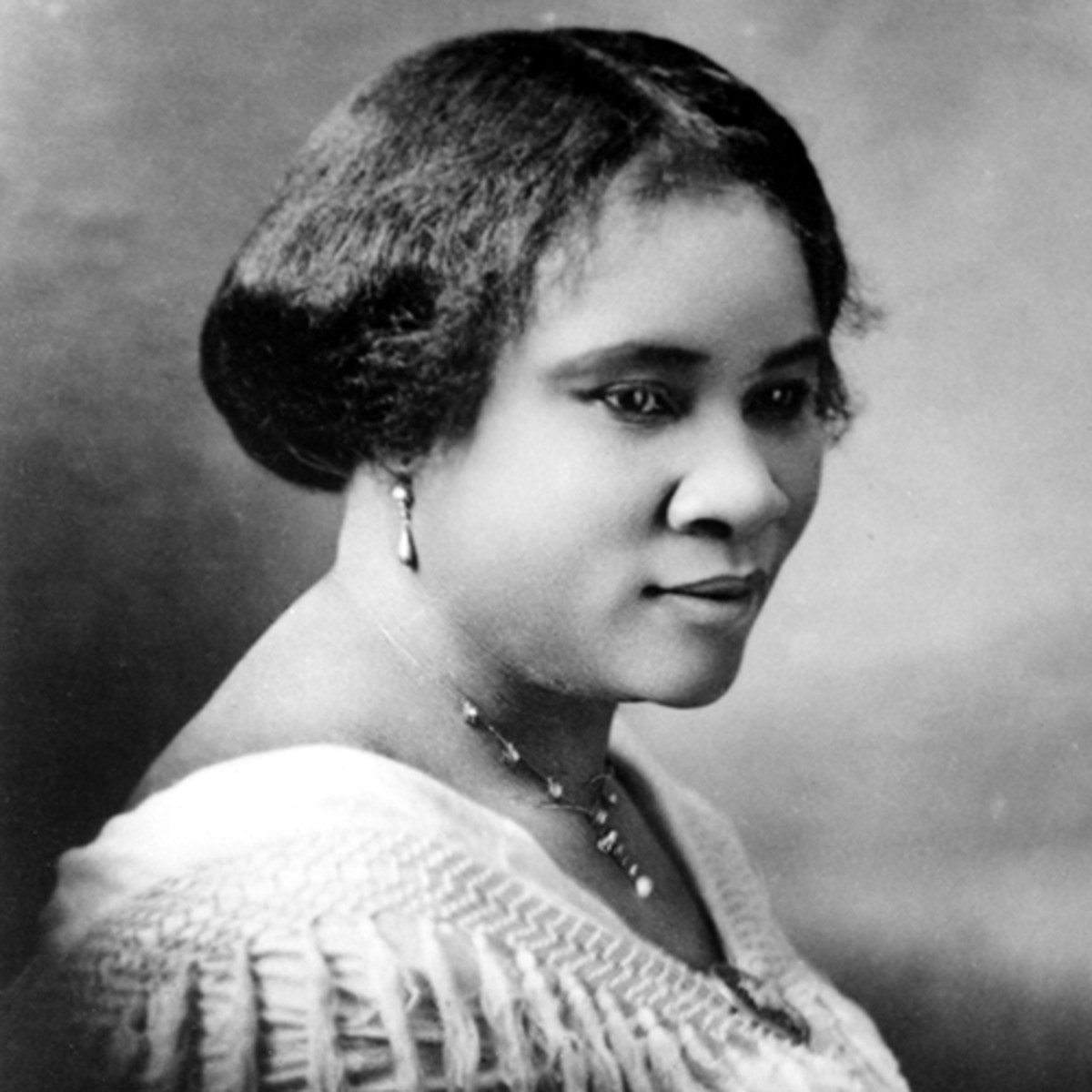
#1: Haircare Pioneer - Madam C.J. Walker (Sarah Breedlove)
Perhaps the first mainstream entrepreneur was Sarah Breedlove, later known as Madam C.J. Walker. Sarah was born into poverty. Her parents were both former slaves, and she became an orphan at a young age. To say she built an empire out of nothing is an understatement. And that’s why she’s number one on our list of inspiring female entrepreneurs.
Sarah Breedlove didn't have a comfortable upbringing. She had to grow up quickly and learned the harsh realities of life at a young age. When she was only 14, she married her first husband. Sadly, Breedlove became a widow when she was only 20. As a single mother, she struggled to feed her family with a meager $1.50 a day salary.
Sarah went on to marry Charles J. Walker, and his name would eventually become her legacy. Shortly after her marriage, Breedlove’s hair began falling out due to a scalp disorder. After numerous snake-oil remedies failed, she decided to come up with her own concoction. Her first venture into entrepreneurship began with the introduction of Madam Walker’s Wonderful Hair Grower.
Soon, word of her product swept throughout the community. Breedlove began advertising her hair products to African Americans under the Madam C.J. Walker brand. Her products were an instant success in 1905, and she was the first American woman to become a self-made millionaire. Even though she passed away in 1919, her haircare brand still lives on to this day.
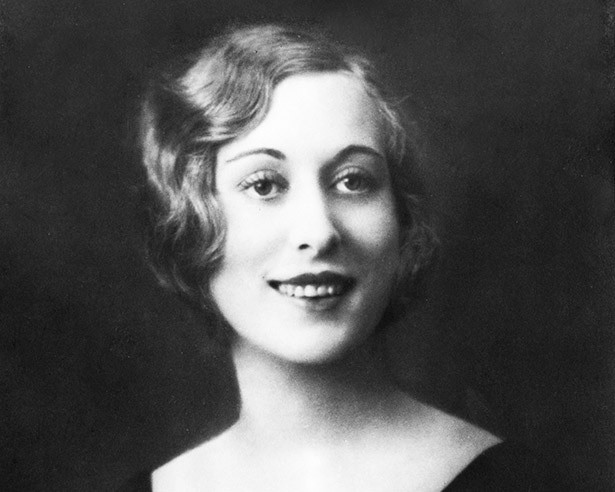
#2: Beauty Boss - Estée Lauder
A native of Queens, New York, Estée Lauder was born into an entrepreneurial family. Her father owned a local hardware store, and her uncle was a chemist known for making face lotions and creams. As a young woman, she began working alongside her uncle, helping to refine his Super Rich All-Purpose Cream.
Initially, Lauder only sold her cream to her friends, but after receiving glowing reviews, she decided to bring the product to market. It became her goal to help all women feel and look beautiful. She began crafting other beauty creams, including Six-In-One and Dr. Schotz's Viennese Cream and sold them in various beauty shops and resorts. It wasn’t long before top beauty salons and major retailers began to take notice.
Lauder wasn’t the type to take no for an answer. She became known for a tactic called guerrilla sales. Once when a manager refused to stock her fragrance, Lauder “accidentally” spilled it all over the counter. The aroma caught the attention of nearby customers, so the manager had no choice but to sell her products.
Estée Lauder Companies now encompass a multitude of beauty brands, including Origins, Clinique, and Bobbi Brown. Although Lauder died in 2004, the umbrella company still generates over $14.2 billion in sales per year.
Estée Lauder Quotes
Her headstrong personality led to some of the most famous female entrepreneurs quotes ever spoken, including:
“I have never worked a day in my life without selling. If I believe in something, I sell it, and I sell it hard.”
“I didn’t get there by wishing for it or hoping for it, but by working for it.”
“If you don’t sell, it’s not the product that’s wrong; it’s you.”
“Act tough: what others call tough, I call persistent.”

#3: Curve Enhancer - Sara Blakely
Sara Blakely fell into entrepreneurialism out of need. At a young age, she sold fax machines by going door-to-door. During her tedious shifts, Blakely realized she needed better undergarments to wear under her not-so-forgiving white slacks. In a pinch, she MacGyvered a makeshift remedy using a pair of pantyhose.
Knowing other women could benefit from figure-improving shapewear, Blakely began marketing her invention to local retailers—she even shilled her product on the Neiman Marcus sales floor. In the blink of an eye, the Spanx brand came to life—and Blakely was only 27. Little did she know she would soon become one of the most successful female entrepreneurs under 30.
Blakely’s jump into the entrepreneurial world was well worth it. Not only did Spanx become a celebrity-endorsed brand seemingly overnight, but Forbes also named her the youngest self-made female billionaire. Today, her net worth is over $1.1 billion.
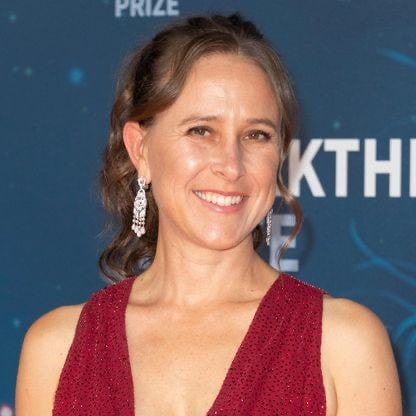
#4: Genes Guru - Anne Wojcicki
Even though you’ll rarely catch her in a pair of bluejeans, Anne Wojcicki is the go-to person when it comes to unraveling your genes. Former wife of Google co-founder Sergey Brin, she is the co-founder of the highly publicized website, 24andMe. The company began as a way for the general public to take control of their health. Today, it helps reunite adopted children with their biological parents, and gene profiles can even solve cold cases.
Many serious health issues, including certain types of cancer and autoimmune disorders, have a suspected genetic link. In March of 2018, 24andMe received FDA clearance to sell cancer-testing kits directly to the consumer. For this reason, Wojcicki became one of the top female entrepreneurs in 2018. As she says about her company, “When people have access to their information, they can mitigate risk.”
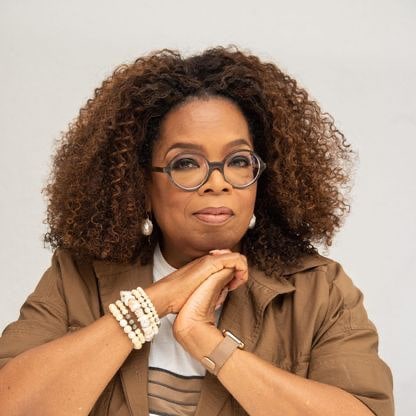
#5: Syndicated Entrepreneur - Oprah Winfrey
Of all the famous female entrepreneurs in the world, no name is more recognizable across the globe than Oprah Winfrey. Even though Oprah has an estimated net worth of $3 billion today, money didn’t always grow on trees. Both poverty and sexual abuse cut her childhood short. Little did young Oprah know how her rough start in life would pave a golden road to success.
Determined to make something of herself, Oprah worked as a news anchor, and viewers paid attention whenever she was on the air. Soon, the Oprah Winfrey Show made its debut. Her ratings rivaled those of Phil Donahue.
In 1986, Oprah began Harpo, Inc., her own production company. After years of success, she knew the type of television content her audience desired, and she wanted to produce topics she found interesting. Oprah’s story proves you don’t have to be born with a silver spoon in your mouth to become one of the most-loved icons in the world.

#6: Healthcare Helper - Stephanie Eltz
You don't have to stay in the United States to find talented women. A trip across the pond will introduce you to many aspiring businesswomen, including Stephanie Eltz. She is the co-founder of Doctify—a healthcare platform designed to take the guesswork out of finding a doctor and booking an appointment.
Eltz is no stranger to the health industry; she’s a practicing orthopedic surgeon. However, when searching for a doctor to remove a cancerous mole, she soon felt the same frustrations of her patients. Which doctors are the best? How do you schedule an appointment quickly? What do other patients say about the office?
These questions led to the creation of Doctify. This unique platform connects patients with a network of specialists from a variety of practices. Users can also leave reviews to let other patients know about their personal experience with a particular doctor. It was her mission to give patients the ability to take control of their healthcare choices. Eltz’s passion for medicine and dedication to serving patients is the reason why she became one of the most famous female entrepreneurs in the UK.
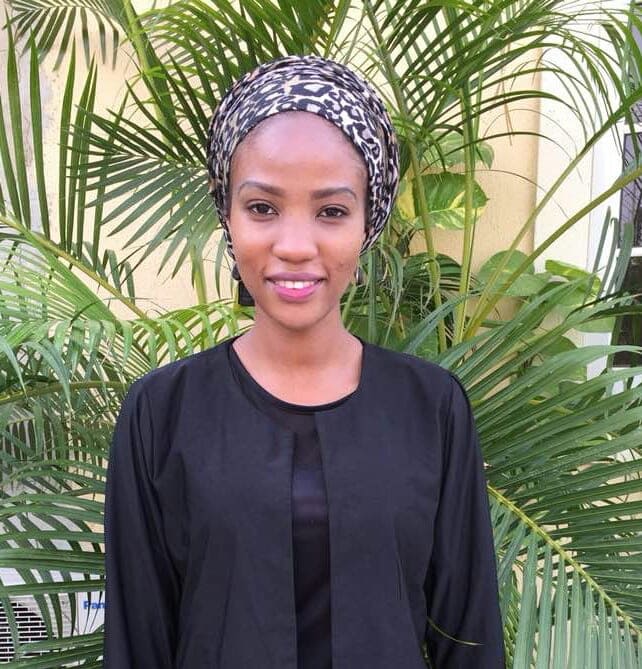
#7: Market Linker - Hafsah Jumare
Not every country in the world is as privileged as the US. Poverty is a way of life in most third-world countries. Nigerian entrepreneur Hasfah Jumare decided to address this issue head-on. She wanted to find a way to link smaller Nigerian startups with broader markets across the globe.
The idea for CoAmana began while Jumare was finishing her Ph.D. proposal. She poured her entire income into funding her dream, but she faced many obstacles along the way. However, she never let rejection stop her.
In an article entitled “Northern Nigeria Female Entrepreneur Invents Digital App To Boost Small Businesses,” Aledeh.com reports how the company focuses on closing societal gaps through “market-enabling” technologies.
Today, the impact of CoAmana is evident throughout Nigeria. The pilot launch connected 120 small business owners with a much broader world market. Jumare’s goal for 2020 is to reach 10,000 small business owners in the Kaduna State.
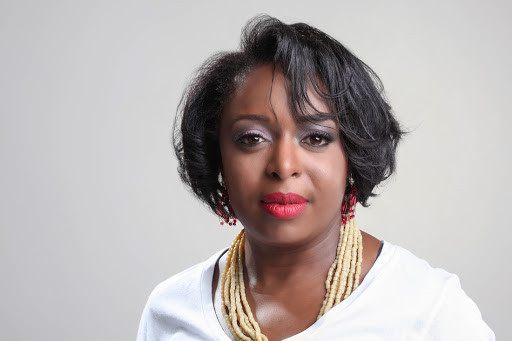
#8: Representing the Underrepresented - Kimberly Bryant
As Kimberly Bryant watched her daughter’s interest in computers blossom, she also noted her frustration. Kia would tell her mom how the boys always received preferential treatment in school. Bryant decided to investigate further. Not only did she find favoritism amongst boys, but she also witnessed the underrepresentation of minorities.
Bryant made it her mission to give female minorities the same opportunities as their male peers. She formed the Black Girls Code with this goal in mind. This non-profit organization teaches underrepresented youth valuable computer programming skills.
Recently, Bryant partnered with two other successful women to bring awareness to females in the workforce. In a video called “3 female trailblazers help revive Rosie the Riveter jumpsuit,” the Today show reports how Bryant plans to celebrate working females with a redesign of the iconic jumpsuit.

#9: Detoxifying Beauty - Cassandra McClure
Have you ever read all the ingredients inside skincare and makeup? Cassandra McClure did, and what she found out shocked her. As a professional makeup artist, McClure believed she knew everything about makeup. But after a psoriasis diagnosis and dealing with a host of other ailments, her life quickly changed.
Doctors couldn’t explain McClure’s sudden symptoms. However, after learning about the link between health issues and toxic beauty products, she decided to make a change. And once she did, she noticed a difference in her mood and health within days.
McClure soon discovered finding healthier beauty alternatives wasn’t as easy as she hoped. To simplify the search for other consumers, she began her Clean Beauty brand. As the founder of Clean Beauty Podcast, Conference, and Business Retreat, McClure focuses her energy on finding safe products for her audience. She even introduced her first makeup product last year, called the Lash Binder.
Today, there is a massive shift toward healthier makeup and skincare. In “Four Fearless Female Entrepreneurs Who Are Revolutionizing Clean Beauty,” Forbes estimates clean beauty projects will generate $22 billion by 2024.
Although Clean Beauty Podcast has become a highly lucrative venture, wealth was never McClure’s goal. Empowering women to take control of their health through ingredient education remains her mission.
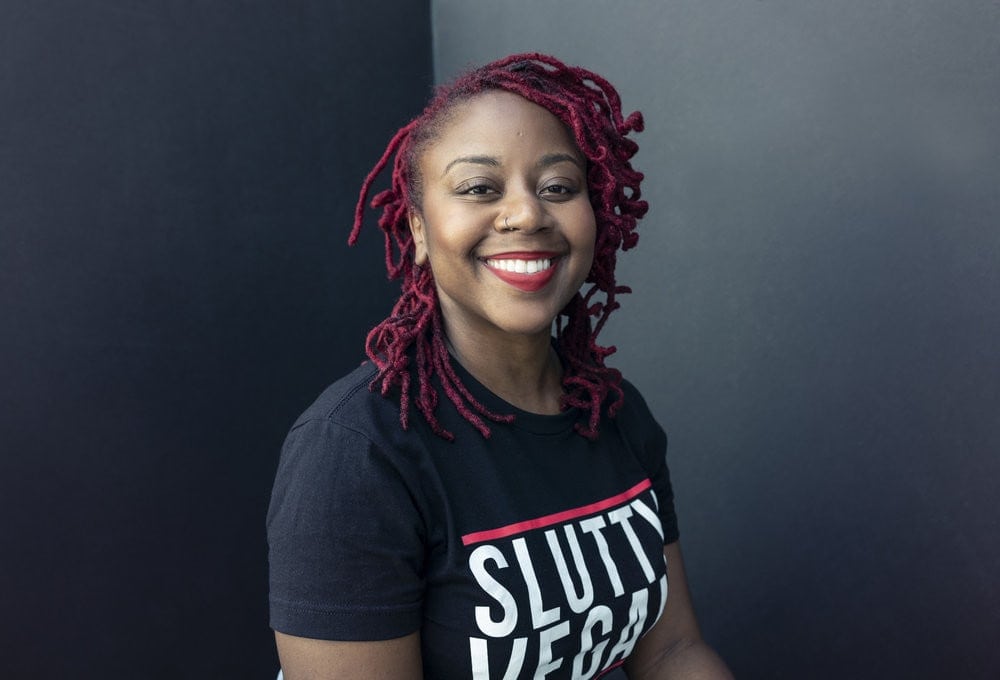
#10: Plant-Based Cravings - Pinky Cole
Vegans like junk food just as much as meat-eaters. This revelation is what turned Pinky Cole into a seemingly overnight sensation in the vegan community. One night, Cole was hungry but didn’t want the stereotypical “healthy” vegan food. No, she had a craving for a hearty, plant-based burger. But finding a vegan burger joint is like finding a needle in a haystack.
Cole decided to satisfy her own craving, so she opened Slutty Vegan in 2018. It was an instant success. Vegans could finally indulge in “naughty” food once reserved for carnivores—but without the meat. Everything on the menu is vegan, and her food is neither expensive nor bland.

Even with the success of her restaurant, Cole still loves to give back to her community. In a USA Today video called “Female entrepreneurs clear balances for 30 college seniors,” Cole and Stacey Lee pay off the debt of several seniors from Clark Atlanta University. As an alum of the college, Cole wanted to pay it forward.
How Many Female Entrepreneurs Are There?
The number of women entrepreneurs has grown exponentially over the past few decades. The world has shifted from the belief that women should stay home and raise the kids, and today, there are more females than ever testing the waters of business ownership.
So, just how many female-owned businesses are out there in the world? That’s a multi-faceted question and not one that’s easily answered. But we can assume the answer is well into the millions.
The 2019 State of Women-Owned Business Report (commissioned by American Express), found that in five years, the number of women-owned businesses jumped by 21 percent. In the United States alone, women started nearly 1,817 new businesses per day.
These stats are great news for those of you raising daughters. Although women still lag behind men when it comes to the number of female-owned startups, the gender gap has closed significantly in recent years. The old saying is true—she really can be anything she wants when she grows up.
There’s no reason for anyone to be afraid to test the entrepreneurial waters. Many companies host seminars to give budding businesswomen the tools needed to succeed. In “#SGWomen Celebrating Texas Female Entrepreneurs at TMC Innovation Institute,” the Startup Grind notes they host their signature event to spotlight women entrepreneurs once again this year. The company’s goal is to “inspire, educate, and connect entrepreneurs.”
What City Has the Most Female Entrepreneurs?
You’ll find female-owned businesses all across the country, but there do tend to be some hotspots for those looking to jump into entrepreneurialism. While San Diego, Hartford, Providence, and Austin boast record numbers of women-owned startups, the top spot goes to St. Louis.
According to a roundup by Forbes, a staggering 45.2% of new startups are female-owned in St. Louis. This statistic equates to 2,726 new businesses that employ 6,257 workers. These companies earned an estimated $150-$500 million in gross sales.
How Do Entrepreneurs Start?
Have all these success stories given you the itch to begin your own business? There is always room for new startups in the country. Entrepreneurship provides jobs and brings in revenue. It also creates legacies. After all, capitalism is what makes the American dream a reality.
While there’s no set-in-stone method for beginning your entrepreneurial journey, there are a few steps everyone should take. Here’s what you need to do before you open for business:

Decide on a business model.
Do you see a problem in the world that you want to solve? The most successful entrepreneurs are free-thinkers and problem-solvers. Even when everyone else says something is hopeless, they create their own paths.
Research your marketplace.
Is anyone else already doing your vision? Can you do it better? While competition isn’t a bad thing, you need to make sure to bring something more to the table.
Make your plan.
Every successful startup has a rock-solid business plan. This document will make you do some critical thinking before you jump in headfirst. It will also help you set realistic goals to hold yourself accountable.
Choose a business structure.
Now is the time to learn all about LLCs and S-corps. Get help before you settle upon a business structure as it will have a profound impact on taxes and legal issues.
File all the documents.
You’ll need to file for any licenses and registrations within your region. If you have any intellectual property, now is the time to register and protect it. You should also apply for any local grants that support women entrepreneurs.

How Much Do Entrepreneurs Work?
There is a rumor that entrepreneurs never sleep—they just eat, work, and drink coffee (or other spirits). While starting a business will require a bit of effort, the total hours you put in won’t necessarily determine your success.
Work smarter, not harder. You may be familiar with that old saying, but what does it mean exactly? As a female entrepreneur, the hours you devote to your startup should directly impact the business. Sure, you could try to work 95-hour weeks, but is that type of schedule practical if you’re also juggling three kids, two dogs, and a husband?
While you shouldn’t expect to work only a few hours a day in the beginning, you need to find ways to make your business run itself. Look for ways to automate your business. Consider hiring a virtual assistant to lessen your burden, and clock in and out at the same time each day.
Treat your business like a “normal” job and schedule set hours. While it may tempt you to work all hours of the day and night, you’re more likely to experience burnout. But if you really want to work 12 hours every day of the week, make sure all those hours are actually productive.
How Much Do Entrepreneurs Make?
The sky's the limit when it comes to making money as a woman entrepreneur. According to the job-posting site, Indeed, the average salary of an entrepreneur is $2,670 per month. While that may not be the six or seven figures you hoped for, it’s a starting point. Of course, if you surround yourself with like-minded entrepreneurs like you’d find in The One Percent community, you could find the resources needed to reach your goals faster.
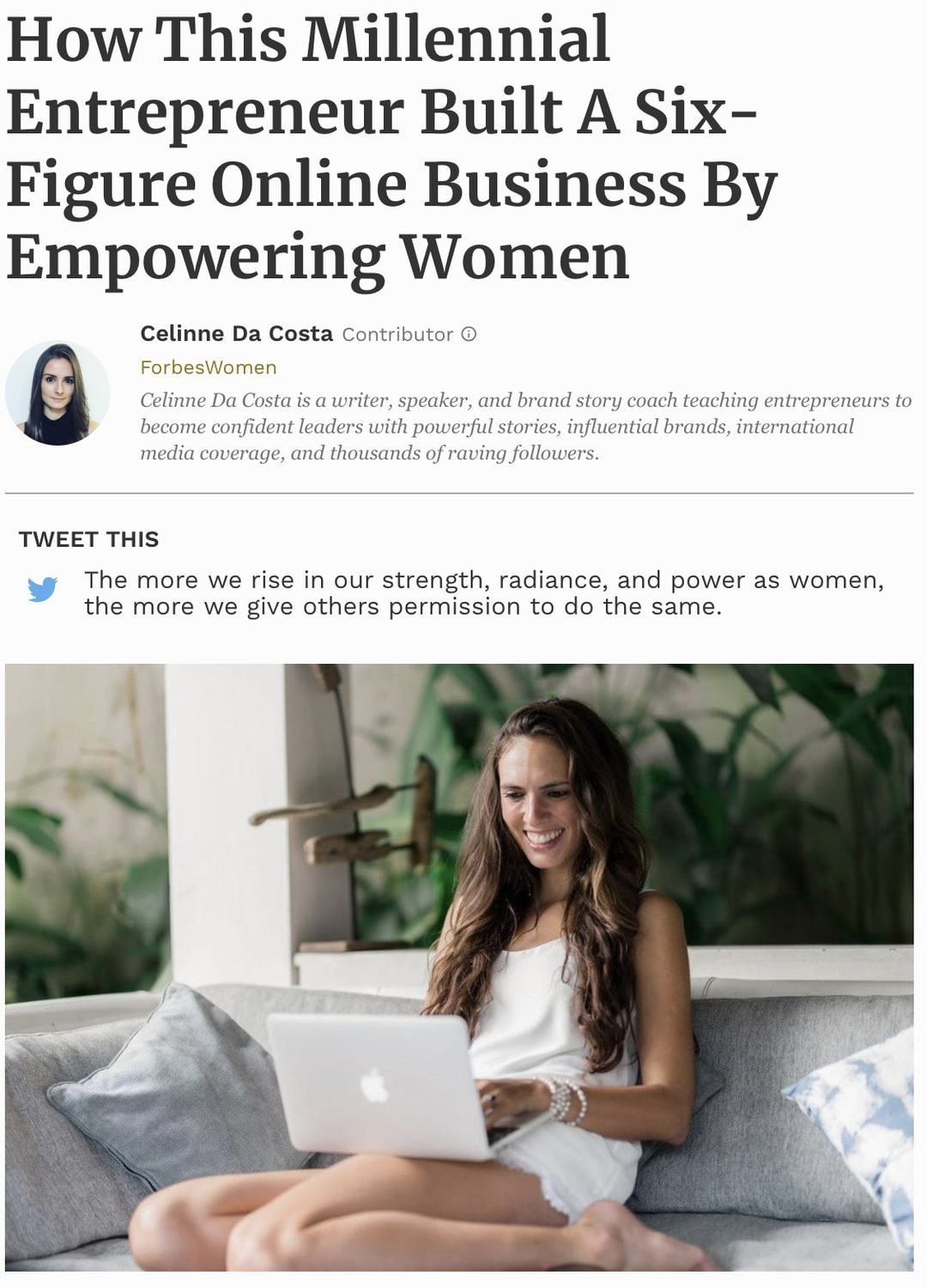
Consider Cait Scudder. In an interview with Forbes, this young millennial recaps how she left her 9-5 job to begin following her dreams as an online entrepreneurship coach. She dove into this unknown world with a vision and plenty of determination, and her hard work paid off big time. Cait enjoyed an impressive 5-figure launch, and one year later, her revenues jumped to well over 6-figures.
Cait’s story proves your business doesn’t have to be just “average.” As long as you have a solid plan, a strong work ethic, and the desire to succeed, there isn’t a goal you can’t reach.
How Do Entrepreneurs Become Rich?
Do you want to make more than 5-figures? What about more than 6-figures? If there’s one thing history has shown, it’s that entrepreneurs can earn as little or as much as they desire. Look at the billionaires on the Forbes 400. Sure, some of these folks inherited their money from mom and dad. But many built their fortunes from the ground up. Of those, a growing number are also female.
The ability to build a profitable business that fulfills a need in the marketplace by serving people is the beauty of capitalism. All you have to do is find a need for a good or serve and fulfill it. Start by taking a look around—what problems can you solve for consumers? Once you determine the answer to this pressing question, scaling your business will be the easy part.
Who Is the Richest Female Entrepreneur?
Believe it or not, the wealthiest female business owner works in a male-dominated industry. Diane Hendricks earned her fortune as the co-founder of ABC Supply, the largest roofing distributor in the United States. As of 2019, Hendricks’ net worth is an estimated $7 billion, which is more than $2 billion higher than the previous year. This impressive number lands her first on America’s Richest Self-Made Women list released by Forbes. Her annual revenue is more than double that of other top female entrepreneurs 2019.
Are All Entrepreneurs Rich?
Rich is a subjective word. While one person may define rich as having a plethora of wealth, another may believe it to be a sense of happiness. And neither definition is incorrect. So even if you break 6-figures in your first year, you may consider yourself to be rich for many other reasons.
Here’s some more food for thought: female entrepreneurs earn a variety of riches in their pursuits. Sure, the money is nice, but you become wealthy through freedom, fulfillment, and experience. The longer you stay in the game, the more you’ll develop a reputation with other entrepreneurs. Ever wonder why do many successful one-percenters have so many companies and ventures going on at once? They know how to network to continue building a lasting legacy.
Would any of these successful entrepreneurs ever give up the freedom of being their own boss to return to the corporate rat race? Although we didn’t get the chance to ask every billionaire in the world, it’s safe to assume the answer is no.
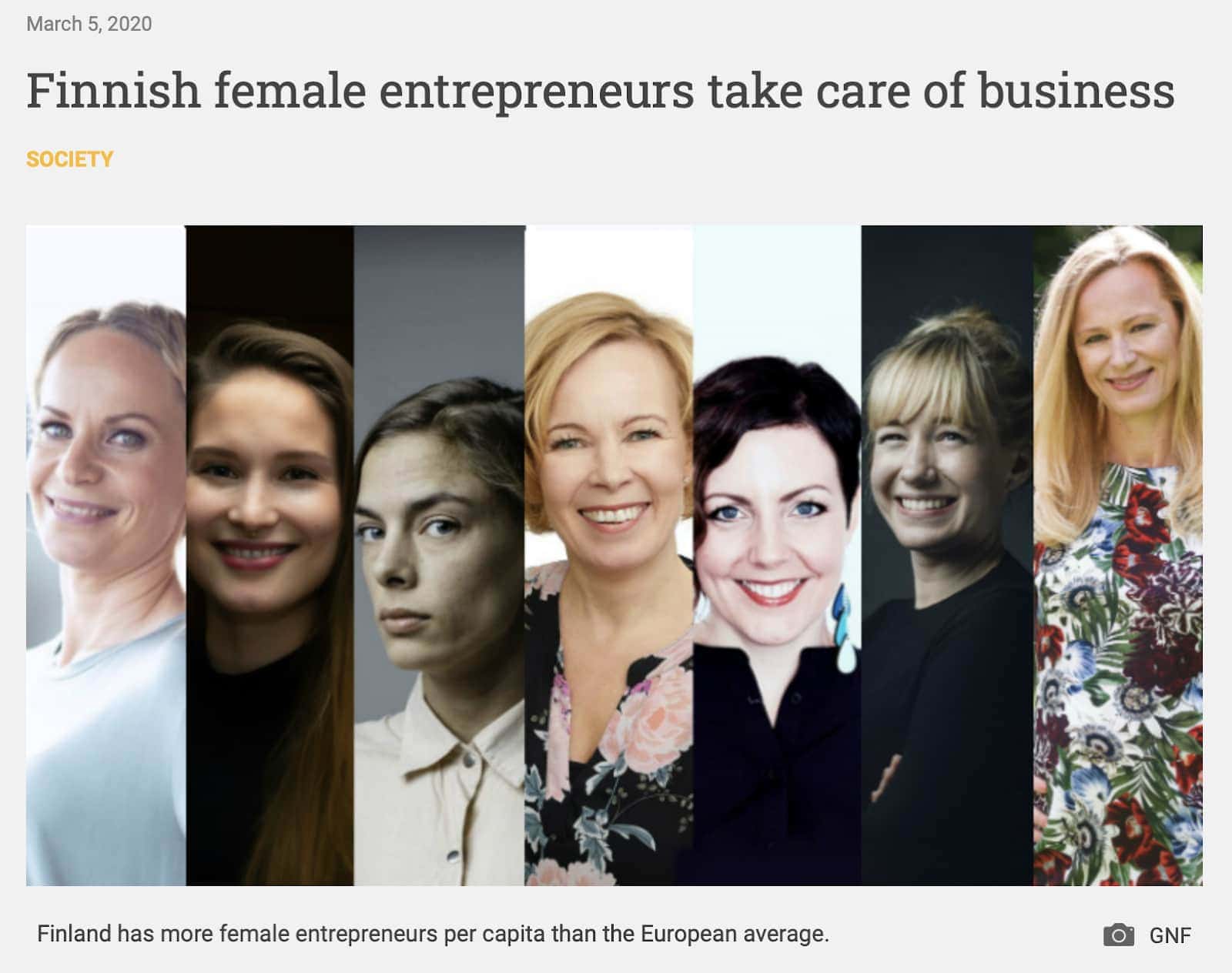
Say Goodbye to the Archaic Gender Gap
While male CEOs still dominate society, women are making a proud entrance into the game. No longer do females feel the need to stay at home while their partners “bring home the bacon.” Instead, more women than ever are leading companies while their husbands raise the kids.
Equality is the norm in the US, although if you read a history book, you’ll realize gender equality is still relatively new. Women didn’t have the right to vote until 1920. It was also around this time when the government passed legislation to ensure equal pay for women.
Many European countries have also put feminism at the forefront. Good News from Finland reports that Finland has more women entrepreneurs per capita than its neighbors. In an article entitled “Finnish female entrepreneurs take care of business,” the site also notes how Prime Minister Sanna Marin’s cabinet is all-female. Marin’s goal is to create legislation to support women in the labor market further.
Ready to Add Your Name to the Growing List of Women Entrepreneurs?
Women make up nearly half of society, and the assumed gender roles of the 1950s no longer apply. Bonnie Birgas in Windsor, ON is proof. After working in construction for 25 years, she founded DS60 Roofing and Siding. According to an article entitled “Windsor female entrepreneur shatters gender norms in male-dominant industry,” CTV News Windsor notes how Birgas’ business grew from one trailer to a full fleet in only a few years. According to Birgas, who is also a great-grandmother, age and gender have nothing to do with success.
Today, female entrepreneurship is more common than ever, and the number of women-owned businesses continues to increase each day. Now is the time to stop wishing and dreaming for a better life, and appreciate the capitalist society in which you live. This era is full of female entrepreneurs success stories, and there’s no reason why your name can’t one day rise to the top of the Forbes 400.
The Takeaway
One reason people find success stories like these so inspiring is that they're ready to find their mission or calling in life. They want to build a business around that calling - a business that lets them call the shots in their life. They also want that business to create enough revenue that they can invest their profits to gain long-term wealth. If that sounds like you, we'd like to invite you to take a look at The One Percent. That's exactly what the entrepreneurs inside this community are doing... right now.




